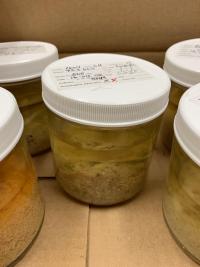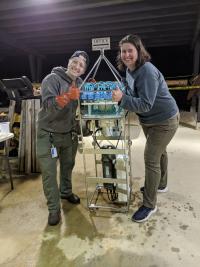Modernizing Ecosystem Assessments & Improving ‘Omics Tools
The Ocean Molecular Ecology Program develops methods to push the boundaries of molecular ecology science. We lead the development of eDNA data management standards, best practices, and tools. This enables high-quality eDNA data interoperability and synthesis. The value of these methods have been recognized at the highest levels of NOAA and the White House.
These efforts include:
1. Co-developing the NOAA Data Management Guide and Technical Portal to facilitate dissemination of NOAA data products and resources.
2. Generating and sharing OME protocols, SOPs, and workflows following Better Biomolecular Ocean Practices (BeBOP) to provide open science resources to enable enhanced ‘Omics adoption, standardization, and interoperability.
3. Advancing 'Omics approaches from novel sources, including decades old archived samples.
4. Improving the accuracy and confidence of eDNA approaches by creating publicly available reference mitogenomes and curated comprehensive reference databases to improve our ability to put species names to DNA sequences..
5. Coordinating across OAR to develop a One-NOAA eDNA metabarcoding bioinformatics pipeline uniting workflows to facilitate accurate, reliable, standardized, and easy-to-implement processing of eDNA data.
6. Building an Integrated Ecosystem Database and workflow to allow for the synthesis of NOAA hydrographic and satellite-derived environmental measurements with biodiversity data (eDNA2OBIS).
7. Expanding ‘Omics sample collection efforts through our partnership with PMEL Engineering Development to deploy autonomous eDNA samplers (McLane ROSCI and PPS) as well as design an Automated Simple Shipboard eDNA Sampling System (ASSESS) to make it easier to collect, filter, and preserve seawater samples from ROV- and CTD rosette-mounted Niksin bottles.




